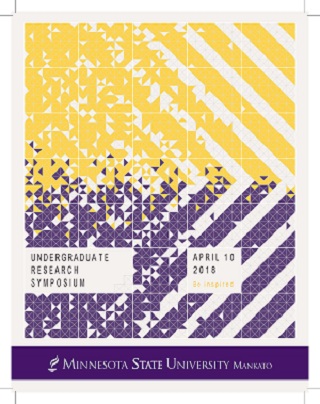A Visual Representation of the Stages of Tooth Development
Location
CSU 202
Start Date
10-4-2018 1:05 PM
End Date
10-4-2018 2:05 PM
Student's Major
Biological Sciences
Student's College
Science, Engineering and Technology
Mentor's Name
David Sharlin
Mentor's Department
Biological Sciences
Mentor's College
Science, Engineering and Technology
Second Mentor's Name
Giovanna Walters
Second Mentor's Department
Honors Program
Description
One of the most amazing sensory organs of the human body are teeth. They help assess the best strategy to chew food and are an integral part to cosmetic looks. However, poor oral hygiene and lack of access to healthcare can cause teeth to decay, become infected, and be potentially removed. Understanding how teeth develop in an embryo might give clues on how to regrow teeth from stem cells, potentially solving some of the stated issues. Tooth development is a complicated process with different signaling molecules conducting various stages. The goal of this research was to create a digital media project summarizing tooth development at an undergraduate level understanding. Numerous research articles, dentistry websites, and other student created projects were evaluated, and cross referenced for relevance, accuracy, and quality of the information provided on tooth development. Sources were often confusing and hard to follow without finding more information to grasp concepts. To overcome this, a written journal was created encapsulating important topics and to create a timeline of critical stages in tooth development. The result of the extensive research synthesis was an animated video presenting five different stages of tooth development and some molecular signaling pathways that allow these stages to advance. The video includes histological pictures, flow charts, and diagrams and was meant to be a visual representation of the information rather than regurgitated text. Using digital media not only helped clarify difficult concepts and examples but can also keep scholars engaged on the subject to inspire future research.
A Visual Representation of the Stages of Tooth Development
CSU 202
One of the most amazing sensory organs of the human body are teeth. They help assess the best strategy to chew food and are an integral part to cosmetic looks. However, poor oral hygiene and lack of access to healthcare can cause teeth to decay, become infected, and be potentially removed. Understanding how teeth develop in an embryo might give clues on how to regrow teeth from stem cells, potentially solving some of the stated issues. Tooth development is a complicated process with different signaling molecules conducting various stages. The goal of this research was to create a digital media project summarizing tooth development at an undergraduate level understanding. Numerous research articles, dentistry websites, and other student created projects were evaluated, and cross referenced for relevance, accuracy, and quality of the information provided on tooth development. Sources were often confusing and hard to follow without finding more information to grasp concepts. To overcome this, a written journal was created encapsulating important topics and to create a timeline of critical stages in tooth development. The result of the extensive research synthesis was an animated video presenting five different stages of tooth development and some molecular signaling pathways that allow these stages to advance. The video includes histological pictures, flow charts, and diagrams and was meant to be a visual representation of the information rather than regurgitated text. Using digital media not only helped clarify difficult concepts and examples but can also keep scholars engaged on the subject to inspire future research.
Recommended Citation
Przybilla, Alysia. "A Visual Representation of the Stages of Tooth Development." Undergraduate Research Symposium, Mankato, MN, April 10, 2018.
https://cornerstone.lib.mnsu.edu/urs/2018/oral-session-10/3




